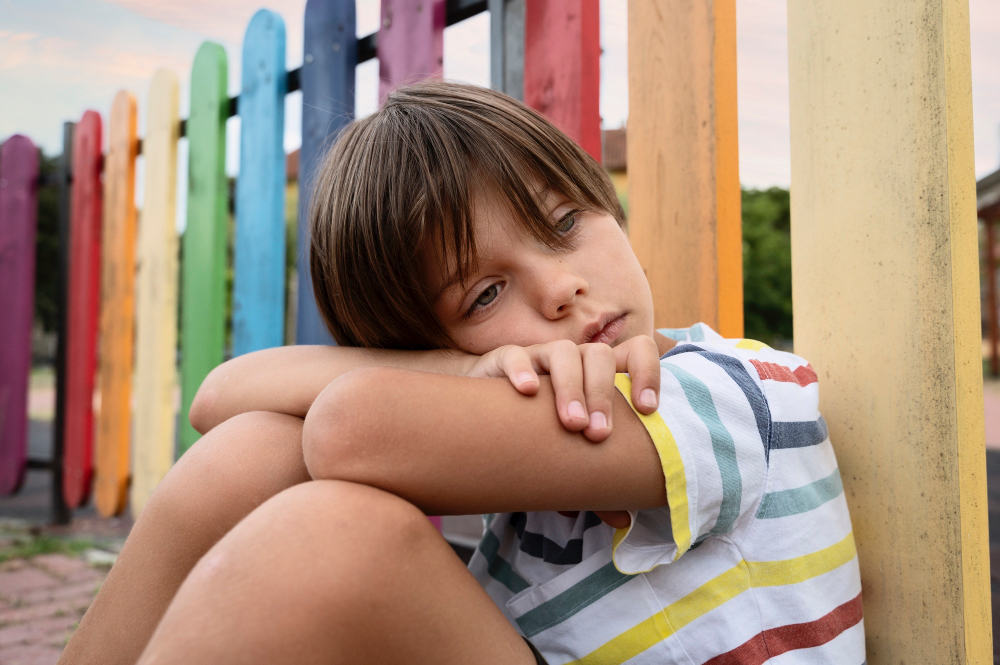I have returned to writing after a long silence—one imposed less by choice than by survival. The move was necessary, a matter of financial gravity after years of lost income entwined with the harm my children endured within an ableist school system. Leaving our home felt like surrendering a life I had fought to sustain, yet staying had become impossible within institutions that erode both livelihood and spirit.
Before the move, I could barely assemble a sentence. Each attempt at language felt like touching a wound that had no skin left to cover it. I was exhausted, stripped to the bone of conviction, frightened that the words themselves might break me.
Since resettling, the exhaustion remains, joined by a low hum of grief and a steady fear for the future, yet something essential has begun to clear. Writing has returned as both compulsion and benediction—a need as physical as breath, an act of coherence after so much dislocation. It seems that the instability I blamed on circumstance was partly the pressure of these words building inside, demanding release. These words are a testament that even after devastation, the will to tell our story remains.
Out of that struggle, here’s what’s been rattling around in my brain:
The moral curriculum of exclusion
Every society teaches through its institutions, and schools are among its most persuasive instructors. Each letter denying an accommodation, each delayed meeting, each shortened school day writes a lesson into the body of a child.
The lesson says:
- belonging is conditional
- need must be negotiated
- safety is provisional
I have read this lesson in my own children’s posture as they shrink to fit the day’s available compassion.
Families across this province have learned it too, each one conscripted into an involuntary civics course on how scarcity and bureaucracy merge into moral instruction.
Just a Parent
When a district tells a parent that funding is exhausted, the subtext is theological—it preaches that virtue lies in endurance and that fairness means everyone must share in deprivation. We all must sacrifice, but some more than others.
We learn early that systems perform benevolence while reproducing harm. We are expected to praise the intention and overlook the injury, to admire the efficiency of those who deny us what law and conscience already guarantee. The message families receive is not that inclusion is aspirational, but not realistic.
The economics of belonging
Behind the moral drama runs an accounting ledger. In Protecting the ledger over the learner, I described how British Columbia’s school districts have operationalised scarcity so completely that it now functions as governance philosophy. Budgets are framed as moral documents, each shortfall dignified by euphemism: flexible staffing, tiered support, attrition. When a resource teacher’s absence goes unfilled for forty-eight hours, the district calls it prudent; yet the child experiences it as abandonment. The preservation of fiscal balance takes precedence over the continuity of care, and the structure learns to call its own withholding sustainability.
-
Protecting the ledger over the learner: operationalising scarcity in BC School Districts
British Columbia’s public schools are mandated to provide inclusive education for all students, but they do so in a context of chronic resource scarcity. Scarcity in education means there are not enough funds, staff, skills, or services to fully meet all student needs. School districts…
Parents notice the difference even when language conceals it. A child who once had a dedicated aide now shares that aide with another; a reading specialist who once visited weekly now comes twice a month; the counsellor rotates across schools like a commuter nurse. The harm accrues in increments so small that each can be rationalised, yet together they constitute a pedagogy of exclusion. We begin to understand that the true curriculum of public education is budget management, and that our children are its unpaid auditors.
-
The goodwill ledger: how schools calculate inclusion allotments
Schools in British Columbia keep an invisible ledger—one that tracks not just budgets, but emotions, tone, and perceived worthiness. Families who ask too clearly, too often, or on behalf of more than one child are quickly marked as overdrawn. This essay continues the…
The exhaustion of good intentions
Most educators did not enter this work to become instruments of deprivation. They are kind, exhausted, and bound by the same system that depletes the children it professes to serve. As I wrote in Raised inside the broken home of public education, they “console without repairing, apologise without reforming, and fill forms instead of gaps.” Their empathy becomes an anaesthetic that permits the machinery of scarcity to continue without revolt. The culture rewards compliance disguised as professionalism.
Parents mirror this dynamic in miniature. We, too, become caretakers of scarcity, apologising for the size of our requests, moderating our tone, learning which phrases irritate administrators and which produce action. We tell ourselves that diplomacy protects our children, and in a narrow sense it sometimes does, but it also perpetuates the hierarchy of permission. The system survives through this choreography of niceness—teachers offering understanding instead of resources, parents offering patience instead of outrage—until the equilibrium of good will replaces the demand for justice.
The system re-enacts the old choreography of poverty and dispersal of responsibility, echoing the parentification of my own childhood in ways that still reverberate through my body.
-
Raised inside the broken home of public education
Every society tells itself that public schools are good homes for children. We picture safety, fairness, and care distributed through the hallways like sunlight. Yet affection without protection becomes a kind of gaslight, and the insistence that everyone inside means well becomes a…
The paradox of parental advocacy
In When righteousness and safety diverge, I tried to describe the threshold every advocate eventually crosses: the point where the pursuit of fairness, and wanting your child to feel like they belong, begins to injure the child it seeks to protect. Activism within a bureaucracy is metabolised like food; it fuels the system even as it resists it. Families pour documentation, emotion, and unpaid labour into processes designed to absorb dissent. We are told that persistence is noble, that withdrawal is surrender, that leaving the fight endangers others. Yet every parent who has watched their child flinch at the mention of another meeting understands that justice has a nervous system, and that its health cannot be measured by policy victories alone.
There are seasons for confrontation and seasons for retreat. Some parents stay and become the movement’s conscience; others retreat to rebuild safety at home. Both choices are forms of love. The real failure belongs to a structure that forces such choices at all, one that mistakes endurance for civic virtue and erases rest as a political act.
-
When righteousness and safety diverge
Every parent who becomes an advocate stands at the threshold between justice and protection. We enter the arena to make things better, yet the fight itself can wound the very children whose pain brought us here. There is always a moment—quiet, terrible—when the…
Scarcity as ideology
Scarcity is often mistaken for realism, yet as Starving the future argued, it is a design choice that carries eugenic implications. The state withholds care and names the absence efficiency. It funds segregation more readily than support, because exclusion costs less than true inclusion. This theology of shortage teaches children that dignity lies in needing less and that self-containment is the highest good. I have seen this creed take root even within my own family: a daughter who fears looking like “one of those girls who need help,” a son who insists on managing pain privately so as not to burden others.
Schools reproduce this moral economy daily. The child who implodes after school is praised for self-control; the one who explodes is a pariah or maybe not school ready. Teachers learn to triage compassion, distributing attention according to behavioural return on investment. Over time, scarcity becomes invisible—its logic internalised as maturity, its wounds reframed as resilience. It is here that policy crosses into culture, where structural neglect becomes character formation.
-
Starving the future: how underfunding and poor education policy are functionally eugenics
From the safety of our northern vantage, it is easy to feel heartbroken and a little superior when we watch the dismantling of the American social welfare state—when we see libraries defunded, schools privatised, and healthcare withdrawn with brutal efficiency. We shake our…
After legal victories, the void
The law, too, has learned the art of scarcity. The Supreme Court of Canada’s decision in Moore was heralded as a triumph for disability rights, a declaration that access to education is a human right. Yet as After Moore demonstrates, victory without enforcement is theatre. Districts complied on paper while rationing in practice. They learned to speak the dialect of inclusion—universal design, multi-tiered support, continuous improvement—without altering the material conditions of classrooms sufficiently. The promise of equality dissolved into procedure.
For families, the aftermath of such a victory is a strange kind of silence. We are told that the system has already changed, that further complaint is redundant. Yet the letters keep coming, the exclusions continue, and the weight of proof shifts back onto parents who must demonstrate that harm persists. The legal precedent becomes a shield for inaction, proof that the matter has been settled when, in truth, it has only been codified as an illusion.
-
After Moore: why winning didn’t fix public education
When the Supreme Court of Canada ruled in favour of Jeffrey Moore and his family in 2012, affirming that meaningful access to public education was not a luxury but a legal right for disabled students, it seemed as though the tide had turned.…
The exhaustion that binds us
When families meet teachers now, everyone is tired. The teacher apologises for shortages, the parent apologises for urgency, and both leave feeling complicit in something vast and immovable. The exhaustion itself becomes evidence of participation: if everyone is suffering, surely the system must be fair. But exhaustion is not equity; it is the residue of a structure that mistakes mutual depletion for shared purpose.
We begin to recognise that inclusion cannot be achieved through goodwill alone. It requires political courage, material redistribution, and an explicit rejection of the narrative that some children are too expensive to educate fully. Scarcity is not a neutral condition; it is a form of moral triage that ranks human lives by administrative convenience.
Reclaiming the human ledger
Families of disabled children are teaching a counter-lesson. Every request for an aide, every insistence on full-day attendance, every refusal to accept a partial education is a declaration of abundance. We are saying that the ledger must account for humanity, that budgets are moral texts whose margins contain the story of who we value. In designing for difference, schools discover universality: the ramp built for a wheelchair also welcomes the stroller, the broken leg, the heavy heart.
In Raised inside the broken home, I wrote that “abundance could exist tomorrow if we chose it.” That remains true. Inclusion is not a utopian luxury; it is an infrastructure for survival. The more fully we design for those most excluded, the stronger our collective fabric becomes. Families are modeling a future where maintenance, care, and repair replace efficiency as civic virtues. Our daily insistence on accommodation is not a plea for special treatment—it is a blueprint for societal resilience.
Flourishing as collective ethic
Philosopher Angie Hobbs once described human flourishing as the condition of living well together. For too long, our public institutions have mistaken survival as efficiency and progress. We point toward another horizon, one where flourishing is our creed. To flourish is to have time, rest, and recognition—to inhabit systems that see difference as design, not deviation.
We can choose this. We can replace the theology of scarcity with a politics of abundance, the arithmetic of exclusion with a grammar of care. The school that welcomes every child models the society that survives crisis intact. Inclusion is not merely an educational aspiration; it is the rehearsal for a just, healthy, and resilient world. And beyond its moral imperative, it is simply sound economics for our province.














